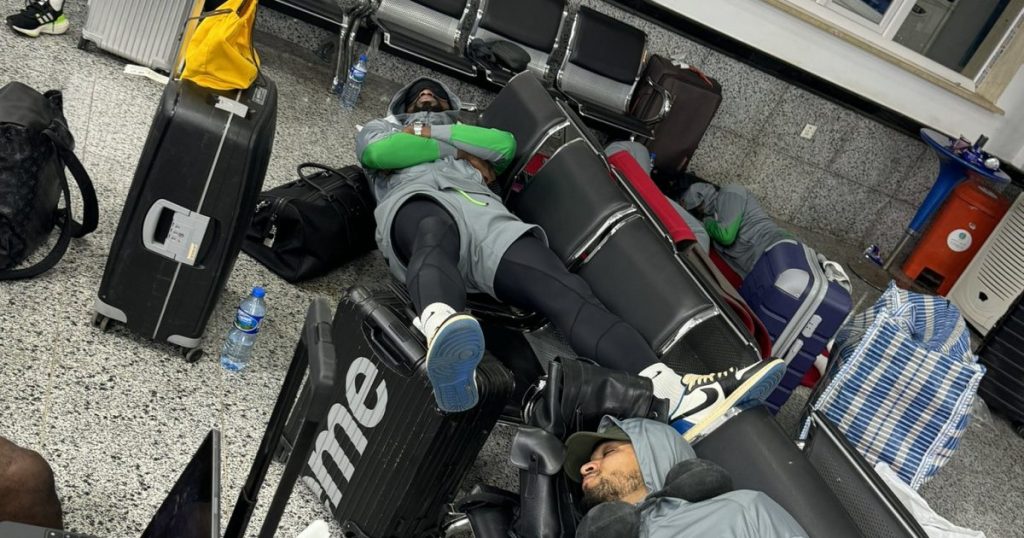The Nigeria Football Federation (NFF) has made a significant decision to withdraw the Super Eagles from their scheduled 2025 Africa Cup of Nations qualifier against Libya, which was set for Tuesday. This decision came after the team experienced a frustrating and prolonged ordeal while at Al Abraq International Airport in Libya. The Super Eagles had arrived at the airport on Sunday afternoon, but a mishap occurred mid-flight when their chartered aircraft was abruptly diverted to the smaller Al Abraq International Airport instead of their intended destination in Benghazi. This unforeseen circumstance left the players and officials stranded for an exhausting 12 hours without any support.
Upon arrival at Al Abraq, the Super Eagles found themselves in a precarious situation, as they received no assistance from the Libyan Football Federation, which did not arrange for transportation or accommodations for the team. The diversion to a less equipped airport, mainly used for hajj operations, compounded their difficulties. The lack of logistical support and the inability of the Libyan authorities to assist the visiting Nigerian squad raised concerns about the treatment of foreign teams in Libya. This situation not only jeopardized the players’ preparations for the crucial qualifier but also reflected poorly on the organization of football activities within the host country.
Captain William Troost-Ekong voiced his frustration regarding the ordeal, sharing his discontent through social media posts that featured images of his distressed teammates at the airport. His comments highlighted the severity of the situation and underscored the players’ plight, as the lengthy delay and lack of proper facilities wore heavily on their morale. The images of the team in a state of discomfort served to amplify their dissatisfaction, shedding light on the challenges that national teams can face during international competitions, especially when traveling to less familiar venues.
The NFF’s decision to withdraw from the qualifier was met with mixed reactions, as some viewed it as a necessary step to protect the players’ well-being, while others expressed disappointment over missing out on the opportunity for qualification. The situation reveals the delicate balance that national federations must maintain between ensuring their players’ safety and pursuing competitive opportunities on the international stage. Moreover, it raises questions about the readiness and infrastructure of host nations to properly accommodate visiting teams, especially when they are participating in significant tournaments like the Africa Cup of Nations qualifiers.
In light of this incident, there are calls for stronger protocols and agreements between football federations to ensure that traveling teams are guaranteed safe passage and adequate support. The lack of preparation for the Super Eagles’ arrival suggests a potential oversight in logistics that could be addressed in future competitions. This incident could serve as a catalyst for discussions on improving standards and ensuring that all national teams receive the consideration they deserve when competing abroad.
Overall, the Super Eagles’ experience at Al Abraq International Airport serves as a cautionary tale about the complexities involved in international football. It highlights the importance of collaboration among football governing bodies to prevent similar occurrences, ensuring that the essence of the sport is upheld, while safeguarding the welfare of the athletes involved. As the NFF turns its focus from the immediate challenges posed by the qualifiers, it will also need to contemplate the broader implications of this incident for future engagements in the international football landscape.


